The Beautiful and Damned 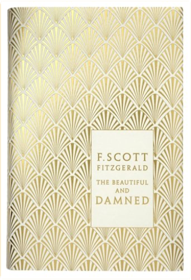 The Great Gatsby 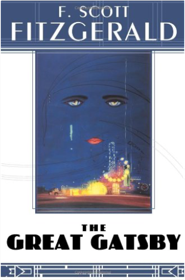 This is the definitive, textually accurate edition of The Great Gatsby, edited by Matthew J. Bruccoli and authorized by the estate of F. Scott Fitzgerald. The first edition of The Great Gatsby contained many errors resulting from Fitzgerald's extensive revisions and a rushed production schedule, and subsequent editions introduced further departures from the author's intentions. This critical edition draws on the manuscript and surviving proofs of the novel, along with Fitzgerald's later revisions and corrections, to restore the text to its original form. It is The Great Gatsby as Fitzgerald intended it. I'd Die For You: And Other Lost Stories 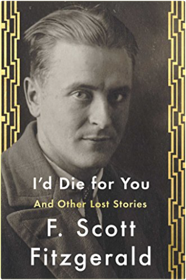 I’d Die For You is a collection of the last remaining unpublished and uncollected short stories by F. Scott Fitzgerald, edited by Anne Margaret Daniel. Fitzgerald did not design the stories in I’d Die For You as a collection. Most were submitted individually to major magazines during the 1930s and accepted for publication during Fitzgerald’s lifetime, but were never printed. Some were written as movie scenarios and sent to studios or producers, but not filmed. Others are stories that could not be sold because their subject matter or style departed from what editors expected of Fitzgerald. They date from the earliest days of Fitzgerald’s career to the last. They come from various sources, from libraries to private collections, including those of Fitzgerald’s family. Readers will experience Fitzgerald writing about controversial topics, depicting young men and women who actually spoke and thought more as young men and women did, without censorship. Rather than permit changes and sanitizing by his contemporary editors, Fitzgerald preferred to let his work remain unpublished, even at a time when he was in great need of money and review attention. “I’d Die For You,” the collection’s title story, is drawn from Fitzgerald’s stays in the mountains of North Carolina when his health, and that of his wife Zelda, was falling apart. With the addition of a Hollywood star and film crew to the Smoky Mountain lakes and pines, Fitzgerald brings in the cinematic world in which he would soon be living. Most of the stories printed here come from this time period, during the middle and late1930s, though the collection spans Fitzgerald’s career from 1920 to the end of his life. The book is subtitled And Other Lost Stories in recognition of an absence until now. Some of the eighteen stories were physically lost, coming to light only in the past few years. All were lost, in one sense or another: lost in the painful shuffle of the difficulties of Fitzgerald’s life in the middle 1930s; lost to readers because contemporary editors did not understand or accept what he was trying to write; lost because archives are like that, and good things can wait patiently in libraries for many centuries sometimes. I’d Die For You And Other Lost Stories echoes as well the nostalgia and elegy in Gertrude Stein’s famous phrase “a lost generation,” that generation for whom Fitzgerald was a leading figure. Written in his characteristically beautiful, sharp, and surprising language, exploring themes both familiar and fresh, these stories provide new insight into the bold and uncompromising arc of Fitzgerald’s career. I’d Die For You is a revealing, intimate look at Fitzgerald’s creative process that shows him to be a writer working at the fore of modern literature—in all its developing complexities. Magnetism 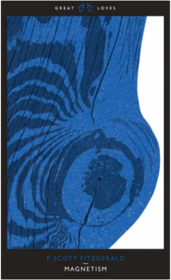 Tales of the Jazz Age 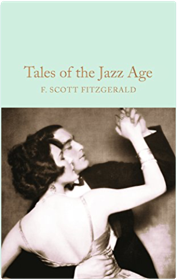 With an afterword by Ned Halley. Designed to appeal to the booklover, the Macmillan Collector's Library is a series of beautifully bound gift editions of much loved classic titles. Bound in real cloth, printed on high quality paper, and featuring ribbon markers and gilt edges, Macmillan Collector's Library are books to love and treasure. Tender Is the Night 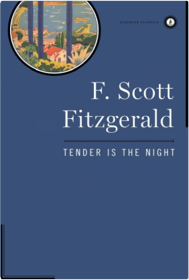 In Tender Is the Night, Fitzgerald deliberately set out to write the most ambitious and far-reaching novel of his career, experimenting radically with narrative conventions of chronology and point of view and drawing on early breakthroughs in psychiatry to enrich his account of the makeup and breakdown of character and culture. Tender Is the Night is also the most intensely, even painfully, autobiographical of Fitzgerald's novels; it smolders with a dark, bitter vitality because it is so utterly true. This account of a caring man who disintegrates under the twin strains of his wife's derangement and a lifestyle that gnaws away at his sense of moral values offers an authorial cri de coeur, while Dick Diver's downward spiral into alcoholic dissolution is an eerie portent of Fitzgerald's own fate. F. Scott Fitzgerald literally put his soul into Tender Is the Night, and the novel's lack of commercial success upon its initial publication in 1934 shattered him. He would die six years later without having published another novel, and without knowing that Tender Is the Night would come to be seen as perhaps its author's most poignant masterpiece. In Mabel Dodge Luhan's words, it raised him to the heights of "a modern Orpheus." This Side of Paradise 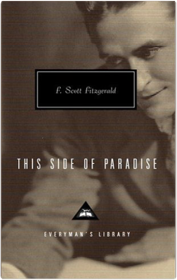 F. Scott Fitzgerald’s extraordinary career as a novelist ended abruptly and unhappily, but it began with one of the most brilliant first novels in the history of American literature. Published when its author was just twenty-three, This Side of Paradise is about the education of a youth, and to this universal story Fitzgerald brought the promise of everything that was new in the vigorous, restless America during the years following World War I. Amory Blaine–egoistic, versatile, callow, and imaginative–inhabits a book that is interwoven with songs, poems, playscripts, and questions and answers. His growth from self-absorption to sexual awareness and personhood is described by means of a continuous improvisatory energy and delight. Far from being distracting, Fitzgerald’s formal inventiveness and verve only heighten our sense that the world being described is our own modern world. A profound coherence informs This Side of Paradise–a coherence born of its author’s uncanny ability to revel in the fragmented surfaces of human life while exploring and comprehending its serene depths. |


Delicious Library
Collection Total:
3,640 Items
3,640 Items
Last Updated:
Nov 2, 2025
Nov 2, 2025
 Made with Delicious Library
Made with Delicious Library